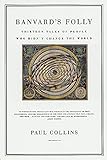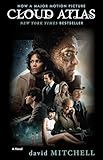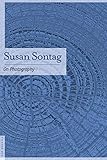1.
 I’m deciding which books to take on a trip to Austin next week. I get excited every time I choose a new book to read, obviously, but I get especially keyed up about choosing books to take on a trip. Vacation books are important. A lot of people use vacation as a time to read lighter, dare I say trashier books, with pictures of women’s calves on the front or authors in bomber jackets on the back. This convention is predicated on the notion that you’ll be able to read for longer periods of time, and books that are heavier – thematically and physically so – will overtax your brain at a time when you are meant to give it a break.
I’m deciding which books to take on a trip to Austin next week. I get excited every time I choose a new book to read, obviously, but I get especially keyed up about choosing books to take on a trip. Vacation books are important. A lot of people use vacation as a time to read lighter, dare I say trashier books, with pictures of women’s calves on the front or authors in bomber jackets on the back. This convention is predicated on the notion that you’ll be able to read for longer periods of time, and books that are heavier – thematically and physically so – will overtax your brain at a time when you are meant to give it a break.
I don’t think this notion gives our brains or our books enough credit. The deep immersion in a book that long bouts of reading produces is suited to books with the richest, deeply-buried treasures. A good book invites you to sever your connection with the real world and come into the one it creates; the longer you read it, the more that connection is severed, the more you exist in the interior world of the book rather than this one. Just imagine how this effect is heightened when the world you are in is alien to you, one where you’re just visiting and don’t know the people or your way around, and therefore the book’s world becomes the familiar one. This is when the magic happens.
I read the second and third volumes of In Search of Lost Time on a trip to Santorini during which I would spend whole afternoons – whole days! – reading Proust on a sun-soaked terrace. I may sound like Marie Antoinette advocating cake here, but those 300-page dinner party scenes are best read in one sitting. It does take a while to adjust to Proust’s rhythms, but once you’re there, my goodness, stay there as long as possible.


 Taking a book on vacation, reading it in this leisurely, savoring manner, stacks the odds that it will become special to me. For this reason, I take a long time choosing, because I know that when I remember the vacation, it will be intertwined with my memories of the book I was reading. I associate Proust with Santorini the way I associate On Photography with Marseilles, Cloud Atlas with a train ride to Kansas City, Out Stealing Horses with a 9-hour plane ride, Home with Grenoble, and The Fault in Our Stars with a cabin in Colorado.
Taking a book on vacation, reading it in this leisurely, savoring manner, stacks the odds that it will become special to me. For this reason, I take a long time choosing, because I know that when I remember the vacation, it will be intertwined with my memories of the book I was reading. I associate Proust with Santorini the way I associate On Photography with Marseilles, Cloud Atlas with a train ride to Kansas City, Out Stealing Horses with a 9-hour plane ride, Home with Grenoble, and The Fault in Our Stars with a cabin in Colorado.
This theory of vacation books, which I subscribe to so heartily, all began with a vacation I took, to London, which was one of the worst decisions I ever made, and the book I took along, Banvard’s Folly, which was one of the best.
2.
I spent my junior year studying in London. I fell in love with the city, and also with one of its men. He was my first real love and is still one of my favorite people in the world, but when the year was through and it was time for me to go back to my senior year in the States, we saw no other option than to break up. About two months later, he saw no other option than to start dating the girl who had been my best friend and roommate in London.
Oh, readers, the drama! The professions of anger and confusion and betrayal and regret and understanding and forgiveness and serenity. Peace was restored, hard feelings were said to be lacking, we all decided to move past it. Eighteen months later, another friend was getting married in London, and I was going over to attend. Ask yourself who the worst person I could have stayed with was. Then ask yourself if I stayed with her.
It wasn’t a fiasco, but it was pretty bad. It was a lot easier for the three of us to be past it when we were an ocean apart rather than in the same room. The folly of our decision to spend five days together was apparent from the first one. When things got weird — and they got weird a lot — I read my book.
I was an author events coordinator in Boston at the time, and we had just hosted Paul Collins. Of the several dozen author events I worked during my years there, his remains my favorite. His 40-minute talk was warm, engaging, informative, surprising, funny, inspiring, and delivered without notes. Every person in attendance, a tragically small number, purchased every one of his books. I did the same, and I’d been saving what I’d heard was the best.
Each of Banvard’s Folly’s 13 chapters tells the story of a person whose genius, ambition, or imagination far exceeded their success. The paperback’s subtitle is “Thirteen Tales of People Who Didn’t Change the World.” They are therefore forgotten, but in Collins’s hands unforgettable. There’s the titular Banvard, a famous painter who squandered his fortune trying to compete with PT Barnum. There’s the guy who first bred the Concord grape before you could patent that sort of thing. There was a French physicist who thought he’d discovered a new source of radiation and a woman who tried to prove Francis Bacon was Shakespeare.
Paul Collins is a gentleman to his subjects, always, and this book neither smirks nor condescends. It had the same lively curiosity and optimism that I’d witnessed in Collins’s talk, and when I needed to escape an awkward room or a conversation I wasn’t a part of, I would excuse myself to be introduced to more of these admirable, doomed people. Each of them was quixotically devoted to an idea that didn’t work out. I actually only just realized, 10 years later, as I’m writing this, that I was devoted to a doomed idea myself. I thought I could maintain two friendships that could not be maintained, and I was watching that idea fail. Maybe I needed to be in the company of someone who never smirks nor condescends.
Banvard’s Folly is very special to me. It was my best friend on that trip. I turned the last page as my plane was taking off from Heathrow. Then I closed the book, and hugged it, and I cried.
I choose my vacation books carefully. I can’t imagine one of them will ever be as significant as Banvard’s Folly was to that trip to London, but they’re important. Choose wisely.









